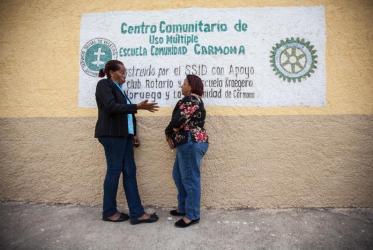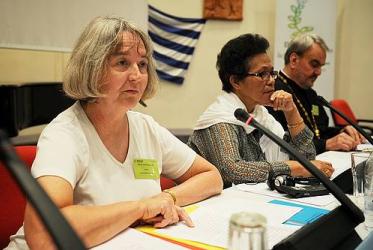Displaying 61 - 78 of 78
10 February 2016
Symposium focuses on religion, violence, extremism
04 February 2016
WCC urges responsibility for and support to the refugees in Europe
04 September 2015
Church leaders address statelessness in Dominican Republic
03 February 2015
Christians around the world pray for unity
22 January 2015
WCC commission leadership selected
13 August 2014
Use of armed drones condemned by WCC
13 February 2014
Churches commemorate Week of Prayer for Christian Unity
24 January 2014
WCC expresses condolences at death of Brother Jeffrey Gros
13 August 2013






